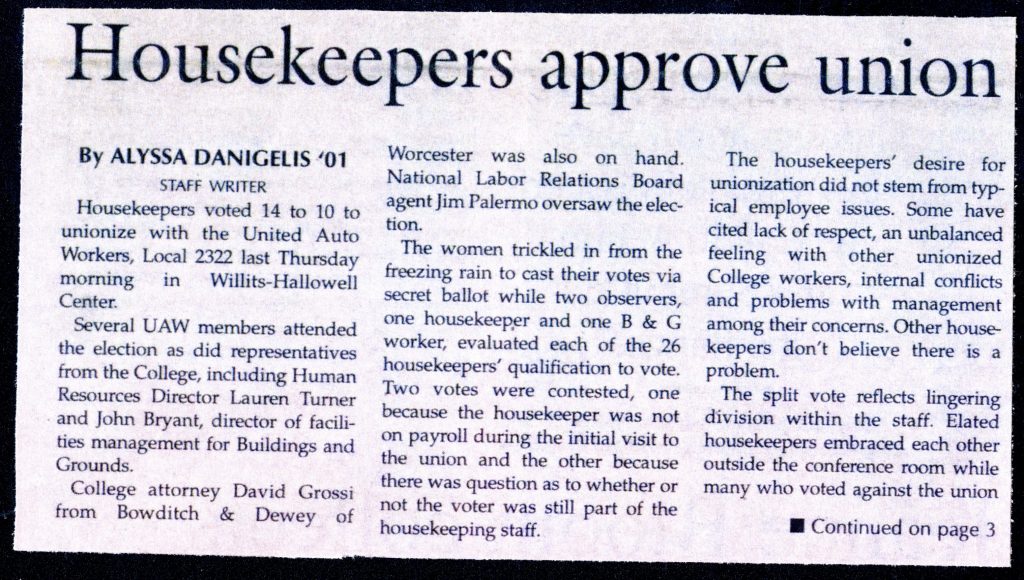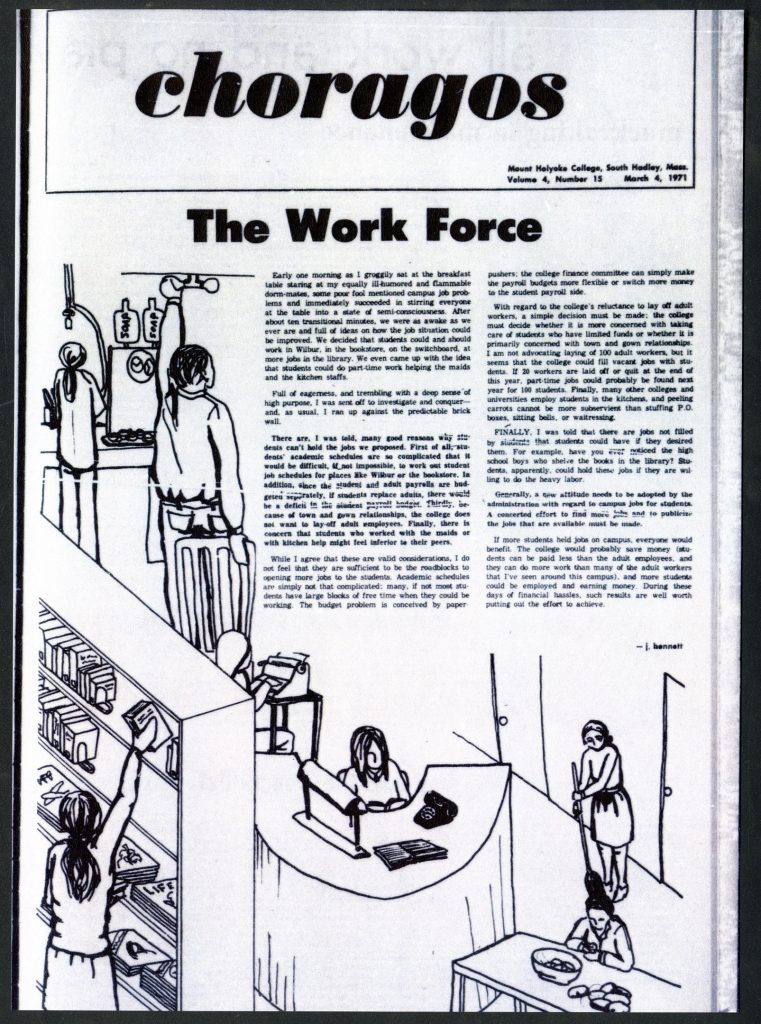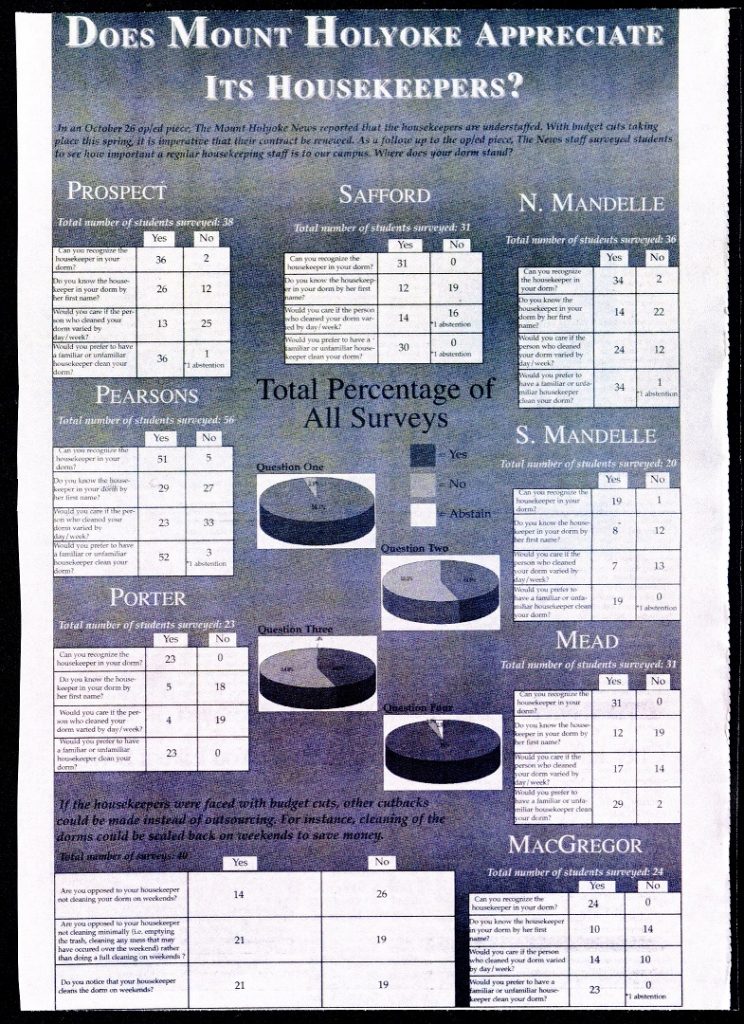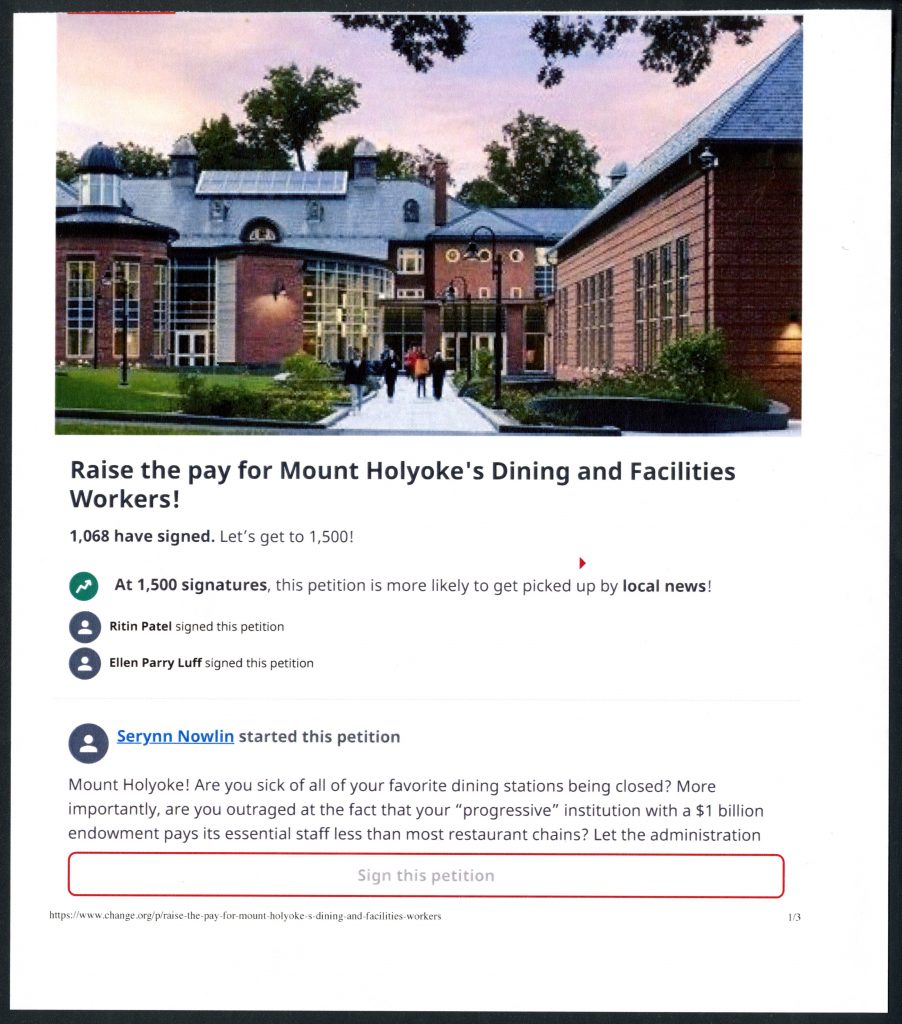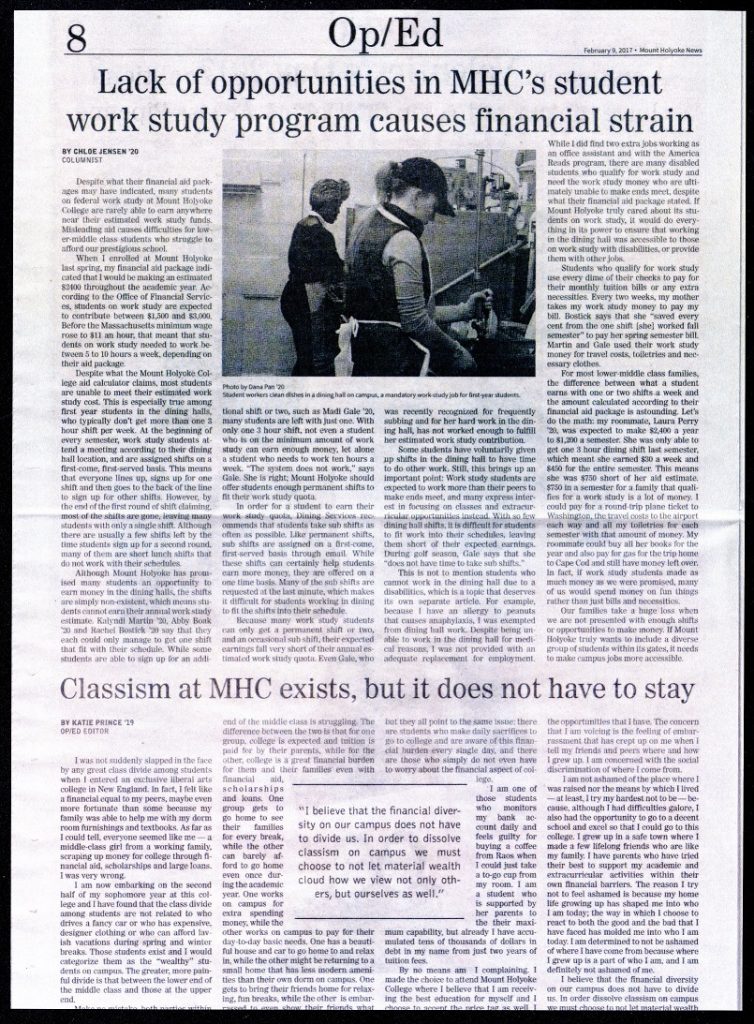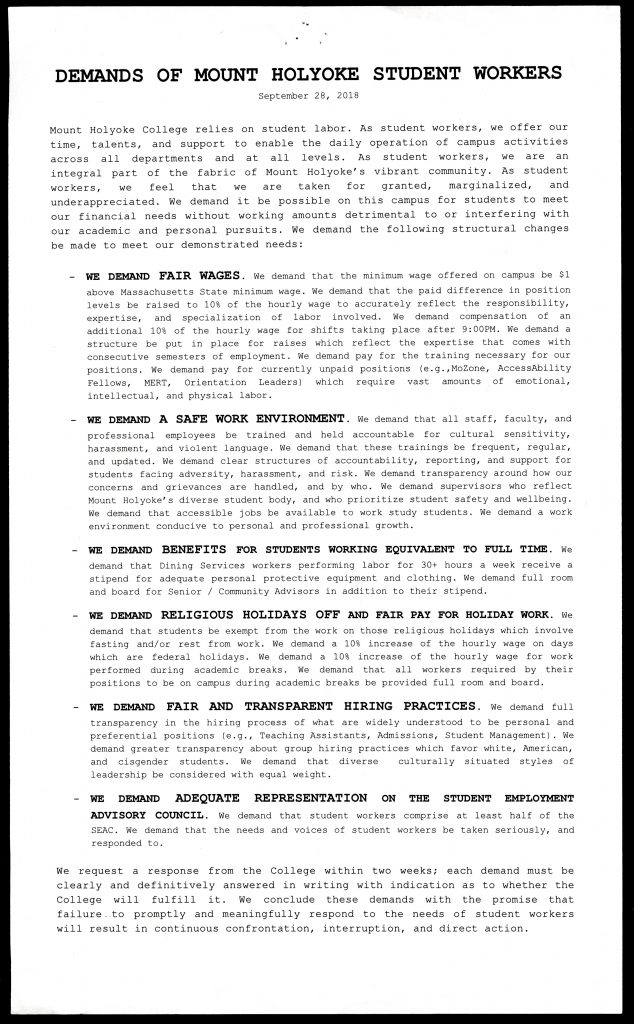As we move forward, working conditions at Mount Holyoke are constantly changing. While students once did all of the domestic work of running the College themselves, today there are many staff across different departments that take on that work. Students continue to have the option of work-study to aid in the cost of college. Throughout history, both students and staff have continued to fight for better working conditions, leading to unionization of staff, and petitions by students.
While Mount Holyoke was unique with its domestic system when it opened, the system in use today is typical at most colleges across the country, although some, such as Berea College in Kentucky, still have a work program. What do you think is the best system?
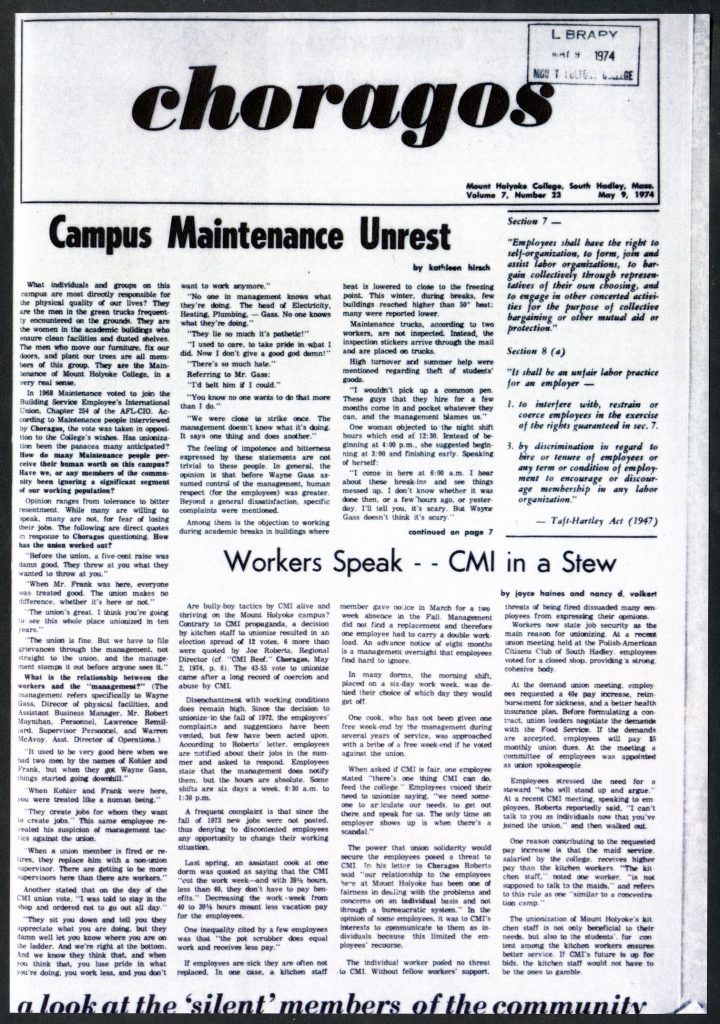
Unionization
Even at the alma mater of Frances Perkins, Class of 1902 and U.S. Secretary of Labor, union-busting existed. In a Mount Holyoke News article in 1974, many maintenance workers, who had unionized in 1968, were afraid to speak for fear of losing their jobs. One worker said that on the day of the union vote, “I was told to stay in the shop and ordered not to go out all day.” The dining staff unionized in 1972 and one cook, who was not given any weekends off by management for several years, reported being approached with a bribe of a free weekend if he voted against the union.
After the workers unionized, management cut the work week from 40 to 39 1/2 hours so that they wouldn’t have to pay benefits including vacation pay. Another worker in the maintenance department reported that “when a union member is fired or retires, they replace him with a non-union supervisor.”
In 2000 the housekeeping department voted to unionize and joined the United Auto Workers against urging from administration.
“They [administrators] think because we’re housekeepers that we’re stupid…but they forget that without us this college wouldn’t be clean,” housekeeper Eunice Coutinho said. “In need to be respected. I don’t care if I lose my job but I don’t want to lose my dignity.”
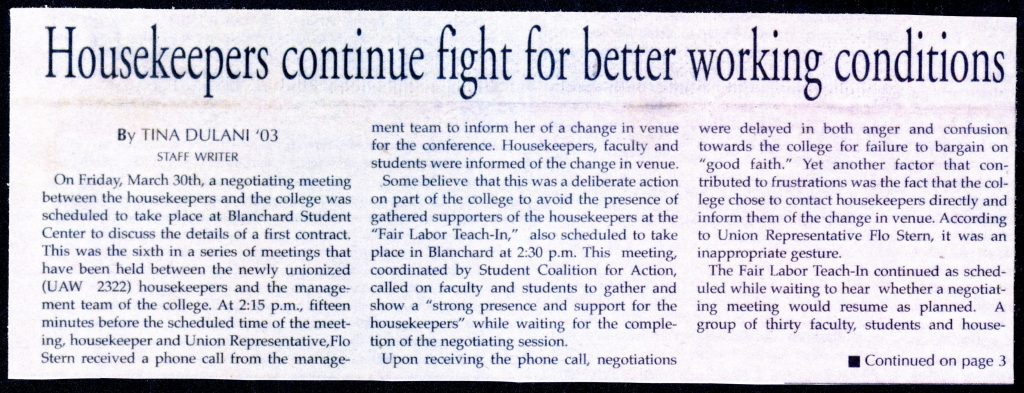
Maids and other staff were not mentioned in detail by students for the most part until after World War II. Since then, students have taken a growing interest in the role that housekeepers, maintenance, and dining staff play in college life. Facilities Management said that an article in the Mount Holyoke News was used when negotiating their contract in the 1970s. More articles have appeared since then. Growing concern among students about working conditions has led to efforts such as a petition in Spring 2022 to raise the wages of dining workers and housekeepers.
Domestic work and the cost of tuition, and therefore access to education, are closely related. When Mary Lyon opened her Seminary in 1837, the domestic system helped keep costs low; tuition was only $60 (about $2,000 in 2022). Her goal was to make education accessible to young women and girls from working class families. Lyon insisted this be done through low tuition rather than scholarships. Student work has continued throughout our history as a way to lower expenses for students. With tuition at Mount Holyoke now among the highest in the world, work-study continues to be a main component of the financial aid package for many students.
Questions to think about:
- What does the evolution of who performs the domestic needs of the College say about the time period it reflects and the values of the College? How and why do these values change?
- Does the evolving system keep in line with Mary Lyon’s vision of an affordable and democratic college for all?
- What are the benefits and drawbacks of student work, required and not throughout college history? How does it exacerbate class differences?
- What is the College’s relationship with its staff and how does that change over the years? What are students’ relationship with staff?
